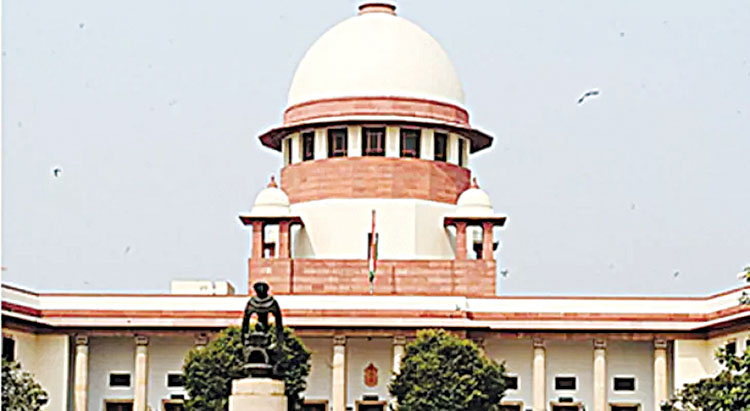New Delhi, May 19 (Mayank Nigam) The Supreme Court (SC) on Thursday held that recommendations of the GST Council are not binding on the Union and States. The apex court also said that Parliament and the State legislatures possess simultaneous power to legislate on GST. “The deletion of Article 279B and the inclusion of Article 279(1) by the Constitution Amendment Act 2016 indicates that the Parliament intended for the recommendations of the GST Council to only have a persuasive value, particularly when interpreted along with the objective of the GST regime to foster cooperative federalism and harmony between the constituent units,” said the bench of Justices DY Chandrachud, Surya Kant and Vikram Nath. The bench further said that neither does Article 279A begin with a non-obstante clause nor does Article 246A state that it is subject to the provisions of Article 279A.
“The Parliament and the State legislatures possess simultaneous power to legislate on GST. Article 246A does not envisage a repugnancy provision to resolve the inconsistencies between the Central and the State laws on GST,” it said. The top court observed that the recommendations of the GST Council are the product of a collaborative dialogue involving the Union and States. “They are recommendatory in nature. To regard them as binding edicts would disrupt fiscal federalism, where both the Union and the States are conferred equal power to legislate on GST. It is not imperative that one of the federal units must always possess a higher share in the power for the federal units to make decisions,” the court noted. It stated that Indian federalism is a dialogue between cooperative and uncooperative federalism where the federal units are at liberty to use different means of persuasion ranging from collaboration to contestation. The bench was hearing an appeal filed by the Central government against a judgment of the Gujarat High Court which had quashed the levy of integrated goods and services tax (IGST) on ocean freight under reverse charge. The Supreme Court upheld the decision of the Gujarat High Court. Commenting on the judgement, Abhishek A Rastogi, Partner at Khaitan and Co said that the court ruling is very clear that the role of the GST Council will be recommendatory in nature and hence the statutory provisions will have to cross the constitutional barrier, if required. “In other words, the statutory provisions cannot take the shield that such changes were based on GST recommendation.
This opens up the question whether different states could have different rate structure for a similar supply and such a deviated position would fundamentally effect the concept of one nation one tax,” he said. Rastogi further said that it is optimistically expected that the states will not have different GST rates for the similar supply as the entire purpose of implementation of GST gets defeated in such a situation as rate Buying will come into play again. “It must be noted that clause 6 of article 279A very categorically provides that the GST Council while discharging the functions shall be guided by the need of harmonised structure of goods and services tax and shall be guided towards the harmonised national market for goods and services. As a corollary, it is optimistically hoped that the recommendations of the GST council will have a very high persuasive value on the state and the Centre and will guide them towards harmonised structure,” he said.

